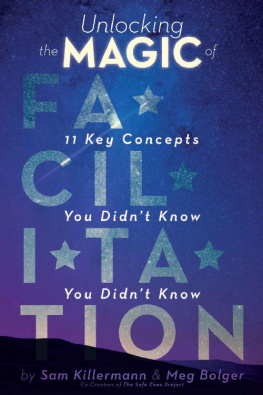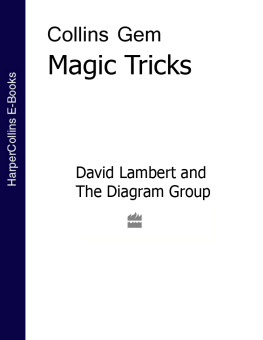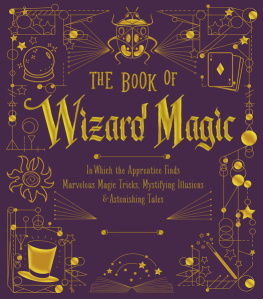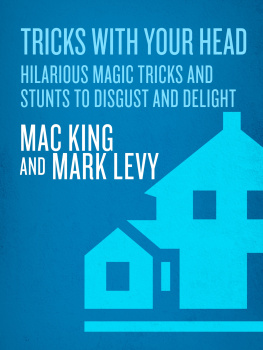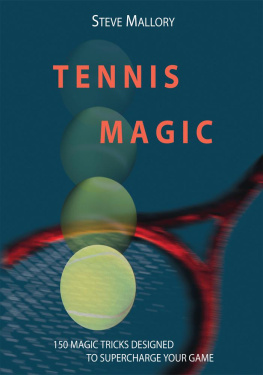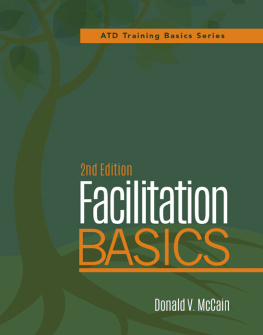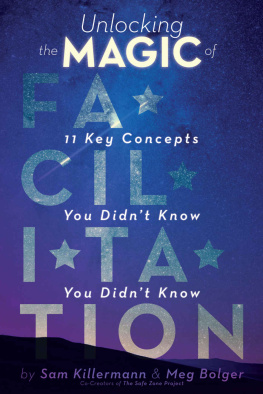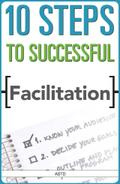Unlocking the Magic of Facilitation:
11 Key Concepts You Didnt Know You Didnt Know
By Sam Killermann & Meg Bolger
Unlocking the Magic of Facilitation:
11 Key Concepts You Didnt Know You Didnt Know
This work is uncopyrighted by the authors, 2016
This work is contributed to the Creative Commons under the CC0 1.0 Universal Public Domain Dedication. For more information about Creative Commons, and this particular contribution to free cultural works, visit https://creativecommons.org/publicdomain/zero/1.0/.

Published by
Impetus Books
Austin, TX
www.impetus.pw
Special discounts are available on quantity purchases by schools, corporations, associations, and others. Book is available in both print and E-book formats. For details, contact the publisher using the above website.
ISBN-10: 0-9897602-3-5
ISBN-13: 978-0-9897602-3-2
Cover photo by Juskteez Vu
Cover design, layout design, and all illustrations
by Sam Killermann
Published January 2016
2 4 6 8 10 9 7 5 3
to the wary and the passionate
Table of Contents
Its still magic even if you know how its done.
Terry Pratchett
Preface
Thrown over a precipice, you fall or else you fly .
Margaret Atwood
In the fall of 2015, we were brought into a small town in rural Washington. It was the type of town where you meet welders and they introduce themselves to you as welders. We were training facilitators at a local university, and we were also asked to facilitate a town hall meeting for the community at large. The town hall was intended to be an educational session about diverse genders and sexualities, in response to the universitys efforts to be more inclusive of folks of all gender identities (and transgender students in particular).
Minutes into the open forum, after we had just barely had the chance to define what is meant by the initialism LGBTQ, a welder sitting in the back of the room raised his hand. He was sitting in the middle of the back wall, with his legs spread wide, leaning back in his chair with his arms firmly crossed. The look on his face was equal parts disinterested and impassioned. We knew he was a welder, because it was one of the first things he said when we called on him. He continued to say something like the following:
I just dont understand why any of this matters. It shouldnt matter. Im straight, and I dont ask people to make a big deal of my sexuality. Just mind your own business, and Ill mind mine. Some people these days make big issues out of nothing, putting, like, gay bumper stickers on their car and stuff. It seems like they just want attention. You never see any straight pride parades. I dont have any straight bumper stickers on my truck. Everyone gets it. We get it. I mean, its starting to feel like its harder to be a straight, White, man nowadays, than anything else.
Without looking at one another, or exchanging a word, we both had the same series of thoughts, and we know this now because we debriefed the entire town hall.
When that welder guy first spoke, we said to each other, did you think : (1) Dang, this escalated quickly ; (2) Did that guy just play All the Hits in one rant? ; and (3) Do we engage with this comment, knowing that doing so will likely redefine the entire town hall, and anything we planned to cover is susceptible to being devoured by the discussion that would follow? (4) If we engaged, where do we even start?
We chose to engage, and the next hour flew by. A clear dichotomy presented itself in the room: those onboard with inclusion of marginalized genders and sexualities, and those opposed. These factions represented their views loudly, and we did everything we could to keep the conversation productive, civil, and more Town Hall than Wild West Saloon Brawl.
We used every trick we had up our sleeve.
We engaged compassionately with the welder and his comrades throughout the event hearing their concerns, their realities, and then providing alternatives that they could consider. We affirmed the folks who were frustrated with the lack of inclusion, or lack of progress in the town (The phrase in two-thousand and fifteen was peppered into a lot of statements. How are we still having this pushback in two-thousand and fifteen?).
At a turning point in the discussion, the welder revealed to us a time that he stumbled into a gay bar (One of their bars, as he put it) by accident, and knew immediately he wasnt welcome.
I could just feel it, he said. He wasnt welcome there, and he didnt like that. It didnt feel fair to him. But thats just how the world is, he implied.
We asked, What did it feel like when you didnt feel welcome?
It sucked.
We let that sink in, then replied, Thats a terrible feeling, to not feel welcome. And its that feeling that we in this town hall, and in the work that the university is doing are trying to prevent. There are lots of people who, right now, feel that way in the majority of spaces they enter. Because when youre not the default, to not be explicitly included is to be implicitly excluded.
His entire body language transformed. He leaned forward in his seat, uncrossed his arms and propped himself up with his elbow on his knee, and his face softened. He didnt reply as much as he simply acknowledged. And this change shifted the energy in the room.
Both of us saw it, felt it, and did a telepathic High-five when it happened. We know this, because we debriefed it after. Did we telepathically high-five when the welder engaged in the conversation?
After the town hall, the welder came up to us, and did something that, for us, is emblematic of facilitation magic: he apologized-thanked us.
Im really sorry that I wasnt getting it. To be honest, there is still a lot I dont get. But I hadnt thought of things the way that Im thinking of them now, about all this stuff . Nobody talked with me that way before. Thanks for that, and for doing what youre doing. And then he shook our hands before heading out back into his life.
The next morning, we had the second day of our facilitator training at the university. A few of the participants were at the town hall and word had spread about what happened. The first question on everyones mind was, How did you do that at the town hall last night?
***
When we work to train others to be effective facilitators, we never get to everything. And sometimes it feels like the more ground we cover, the more aware the folks were training are of how little they know. With that realization comes anxiety and doubt, and the irony is not lost on us: in some ways, our trainings make facilitators feel less competent as facilitators.
No matter how long a train-the-trainer visit is, we never have enough time to explain and share all the nuanced choices we make as a facilitators, how we choose when to engage with antagonistic participants, or everything that is going through our minds the entire time (all the decisions we dont make, as well as the ones we do).
We never get to all the magic tricks.
This is an ever-present frustration for us, because we dont take our responsibilities in facilitator training lightly. We see facilitation as a powerful wand, that in well-trained hands can achieve wonderful, healthy, positive outcomes; and that in untrained hands can lead to disaster and pain. In trying to leave a group with all the techniques they need to be more effective facilitators, to not get to something that we know will make a difference in their future trainings is discouraging.
Writing this book was about creating that resource that we could hand to folks and say, Hey, we didnt get to everything, but never fear: we wrote it down for you.
Next page
